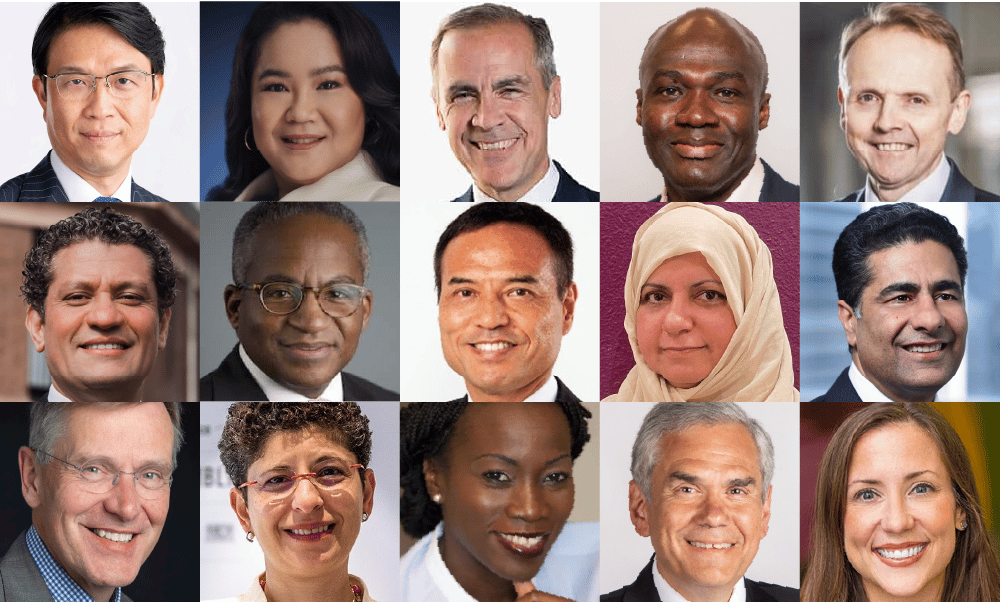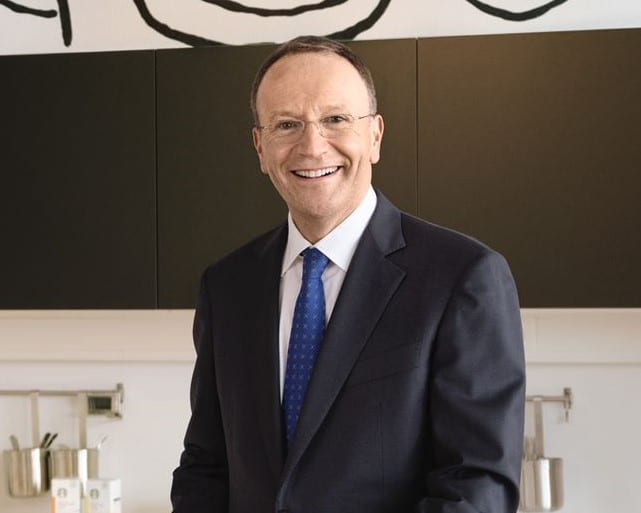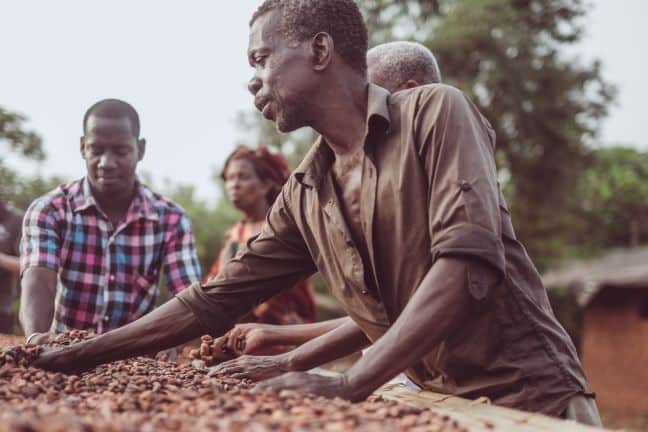Unlocking the power of food to enhance quality of life for everyone, today and for generations to come. That is our purpose. We are the Good food, Good life company. We believe in the power of food to enhance lives. Good food nourishes and delights the senses. It helps children grow healthy, pets thrive, parents age gracefully and everyone live life to the fullest. Good food brings us together. Good food also respects our planet and protects resources for future generations. At Nestlé, we constantly explore and push the boundaries of what is possible with foods, beverages, and nutritional health solutions to enhance quality of life and contribute to a healthier future. We focus our energy and resources where unlocking the power of food can make the greatest difference to the lives of people and pets, protect and enhance the environment, and generate significant value for our shareholders and stakeholders alike. We have more than 2 000 brands ranging from global icons to local favorites, and are present in 186 countries worldwide.
We believe it is vital to state clearly to the world the set of our beliefs about Inclusive Capitalism. As such, we start with our Statement of Guiding Principles for Inclusive Capitalism. Knowing that words alone are not enough, each of us is making a series of commitments about how we will operate our institutions so that they help achieve Inclusive Capitalism. These commitments are forward-looking statements based on current goals, expectations and assumptions, which are not guarantees of future performance. For more information, please refer to our Terms of Use
Filter by commitments
Summary
Activities & Initiatives
Measures & Targets
I. Deforestation-free supply chains
Nestlé will assess the percentage of in-scope supply chains that are deforestation-free using tools such as supply chain mapping, on-the-ground assessments, certification and satellite monitoring, with a goal of 100% deforestation free by 2022 for meat, palm oil, pulp and paper, soya and sugar primary supply chains, and by 2025 for coffee and cocoa.
II. Long-term forest conservation and restoration in our supply chains
Nestlé will measure the number of trees secured for planting each year through its reforestation projects, aiming to grow 200 million trees by 2030.
III. Sustainable landscapes
Nestlé will measure the number of sustainable landscape initiatives supported, with a view to supporting 15 initiatives by 2023.
Summary
Activities & Initiatives
Measures & Targets
Nestlé will measure progress by tracking the percentage of our packaging that is recyclable or reusable, with a goal of 100% by 2025.
Summary
Activities & Initiatives
Measures & Targets
Nestlé Waters will measure the number of projects to advance the regeneration of local water cycles around its 48 global waters sites. Our plan is to implement more than 100 projects and help create a positive water impact everywhere we operate by 2025.
Summary
Activities & Initiatives
Measures & Targets
Nestlé will measure progress by tracking the percentage reduction in virgin plastics use, with a goal of reducing our use of virgin plastics by one third by 2025
Summary
Activities & Initiatives
- ‘Produced sustainably’ means the origin of the key ingredient is known and the direct supplier is progressing to address social and environmental performance. The minimum criteria to define if a raw material is produced sustainably are: Traceable back to the point of origin (farm or group of farms)
- Human rights and environmental due-diligence systems are in place to assess, address and report on the potential or actual impacts in the supply chain
- The tier-1 supplier is measurably progressing in addressing actual or potential human rights and environmental impacts identified in its supply chain, as well as animal welfare where applicable
Measures & Targets
Nestlé will measure progress by tracking the percentage of key ingredients that are produced sustainably, with a goal of 100% by 2030.
Summary
Activities & Initiatives
- Living income and living wage
- Forced labor and responsible recruitment
- Health and safety at work
- Gender equity, non-discrimination and non-harassment
- Right to water and sanitation
- Freedom of association and collective bargaining
- Indigenous Peoples and Local Communities’ land rights
- Data protection and privacy
- Child labor risks and access to education
- Right to food and access to nutritious, affordable and adequate diets
Measures & Targets
Nestlé will measure success by publishing salient issue action plans for our 10 salient issues. By 2025, we will be reporting on our progress on implementing our salient issue action plans.
Summary
Activities & Initiatives
Measures & Targets
Nestlé will measure progress by tracking the number of young people with access to economic opportunities, with a goal of 10 million by 2030.
Summary
Activities & Initiatives
Measures & Targets
Nestlé will measure progress by tracking the proportion of women in our top 200+ senior executive positions, with the aim of increasing this to 30% by 2022
Summary
Activities & Initiatives
Our milestones
- 100% deforestation free for primary supply chain by 2022
- Switch our global car fleet to lower emission options by 2022
- 100% certified sustainable palm oil by 2023
- 100% renewable electricity in all our sites by 2025
- 100% of our packaging recyclable or reusable by 2025
- 100% certified sustainable and deforestation free cocoa and coffee by 2025
- Source 20% of key ingredients through regenerative agricultural methods by 2025
- Cut virgin plastic in our packaging by a third by 2025
- Plant 20 million trees a year
- Nestlé Waters becomes carbon neutral by 2025
- Use more renewable thermal energy in our manufacturing
- Source 50% of key ingredients through regenerative agricultural methods by 2030
- Plant 200 million trees by 2030
Measures & Targets
Climate change is one of society's greatest challenges. It is also one of the greatest risks to the future of our business.
Solving it requires all of us to act with great urgency. Nestlé may be only one player, but we have the size, scale and reach to influence many more and to inspire collective action.
From now until 2025, we will accelerate and expand the work already undertaken to achieve a 20% reduction in emissions. Between 2025 and 2030, we will transform our operations to achieve a 50% reduction of emissions. And finally, from 2030 to 2050, we will work to balance our emissions by exploring how we offset any remaining emissions through high-quality carbon removal projects or innovation, the result of which will be net zero emissions.
To achieve those milestones we are taking action across agriculture, our operations and products, including:
- Protecting trees and landscapes that help absorb carbon and planting 20 million trees every year for the next 10 years.
- Working with farmers to shift to regenerative ways of growing ingredients for food, including for the products we produce.
- Ending deforestation in our primary supply chains by 2022.
- Completing the transition to 100% renewable electricity in the 187 countries where we operate by 2025.
- Increasing the number of 'carbon neutral' brands to give consumers the opportunity to contribute to the fight against climate change.
Nestle will measure progress by tracking absolute carbon dioxide equivalent reductions in millions of tonnes:
- By 2025 we will reduce our emissions by 20% from 2018 levels
- By 2030 we will reduce our emissions by 50% from 2018 levels
- By 2050 we will reach net zero

Sign up your company
Recognizing it will take alignment of all our organizations to scale impact globally, we invite you to join the movement as a Steward of Inclusive Capitalism. Together, the collective action of Council members will contribute to a fairer, more inclusive and sustainable future for all people and our planet.


